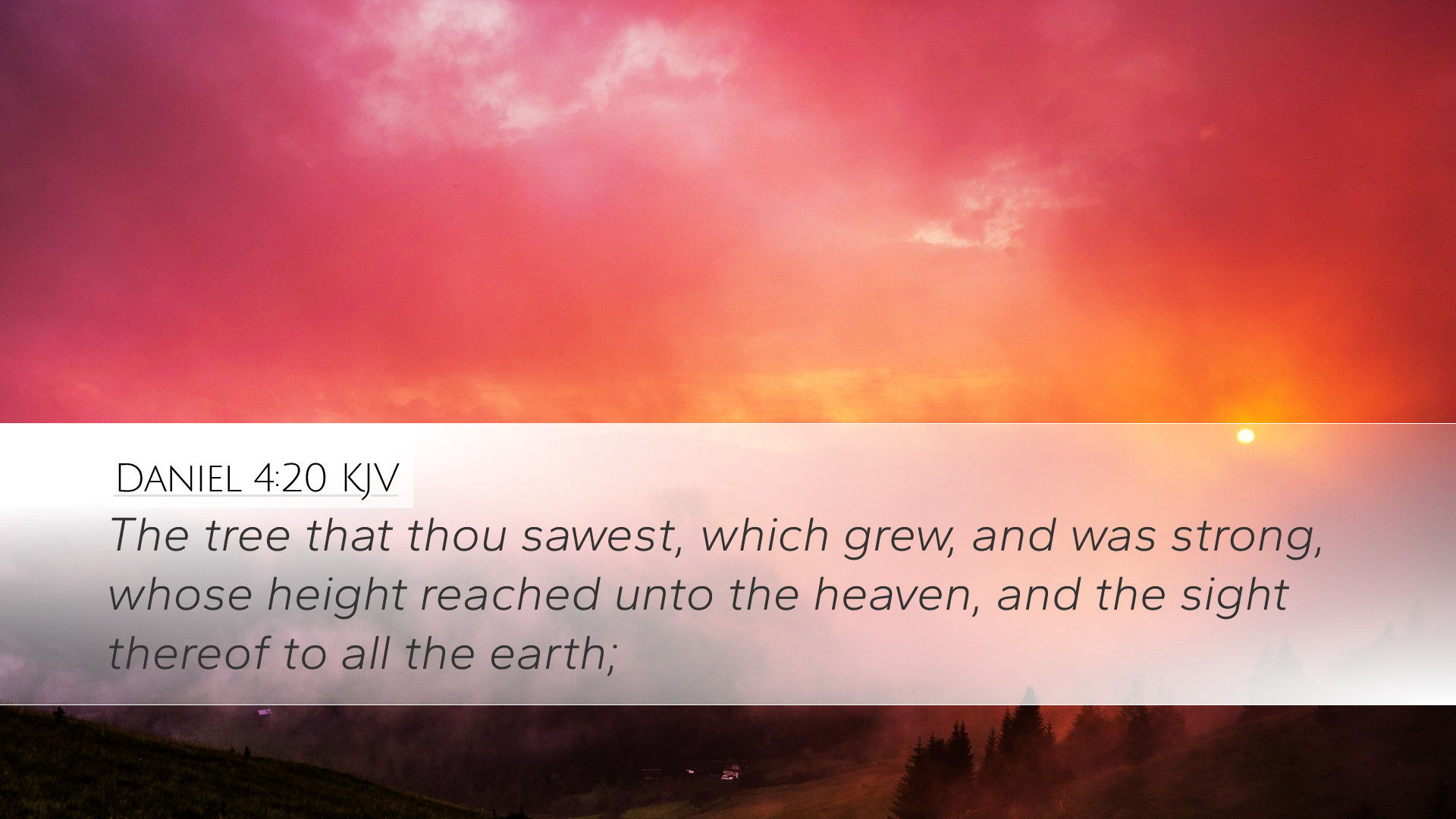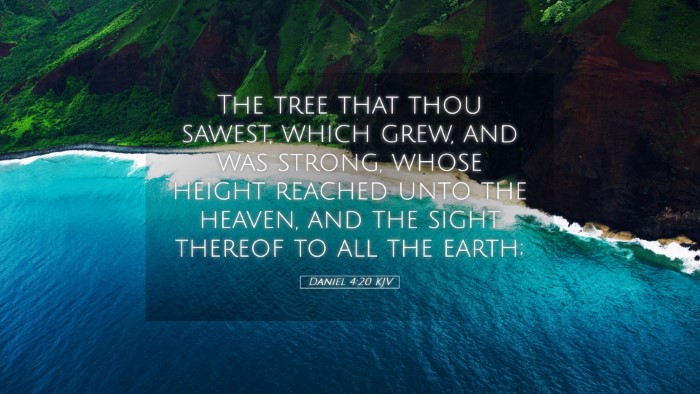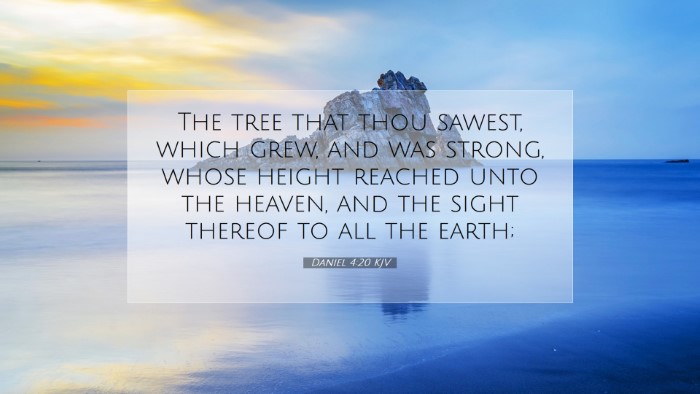Commentary on Daniel 4:20
Daniel 4:20 states: "The tree that thou sawest, which grew, and was strong, whose height reached unto the heaven, and the sight thereof to all the earth." This verse plays a crucial role in understanding the revelation given to King Nebuchadnezzar and provides a symbolic representation of his kingdom, pride, and subsequent downfall.
Contextual Overview
This chapter of Daniel marks a pivotal moment in the Babylonian king's story. The king, having experienced a disturbing dream, sought the interpretation from Daniel, who was given divine insight. The imagery of the tree in this verse serves as a metaphor for the king's reign, reflecting both his greatness and the ultimate consequences of his pride.
Insights from Public Domain Commentaries
Matthew Henry Commentary
Matthew Henry emphasizes the significance of the tree in representing Nebuchadnezzar’s greatness and prosperity. He notes the following points:
-
Symbol of Power: Henry articulates that the tree's height signifies the vastness of Nebuchadnezzar's dominion. The tree "grew" and was "strong" indicates the flourishing of the Babylonian empire, reflecting its expansive influence over the known world.
-
Divine Judgment: He highlights that the vision of the tree also heralds impending judgment, as it will be cut down, symbolizing the king's eventual humiliation. This serves as a critical reminder of God's sovereignty over nations and rulers.
-
Vulnerability of Pride: Henry warns against the pride that can lead to a fall, linking it back to a broader biblical principle seen throughout scripture. In God's eyes, even the mightiest are subject to His will.
Albert Barnes Notes
Albert Barnes provides valuable insights that expand upon the implications of the tree metaphor:
-
Global Visibility: Barnes stresses that the tree's height reaching to "the heaven" suggests not only the empire's vast territory but also the universal recognition of its power. It serves to illustrate the prominence that Babylon held in the ancient world.
-
Symbol of Protection: The leaves and fruit of the tree symbolize the abundance and prosperity provided by the king’s reign. His rule yielded fruitfulness for the peoples under his dominion, showcasing both material and social benefits to his subjects.
-
Impending Fall: Barnes emphasizes the paradox within the metaphor: while the tree is mighty, its fate is destined for destruction as decreed by God. This reinforces the biblical truth that earthly power is transient and can be revoked at any given moment.
Adam Clarke's Commentary
Adam Clarke adds depth to the interpretation by contextualizing the narrative elements within the historical setting:
-
Historical Reflection: Clarke draws parallels between Nebuchadnezzar’s reign and other historical civilizations, suggesting that greatness often precedes downfall. His commentary serves as a cautionary tale about the cycles of empires in history.
-
God’s Sovereignty: He reinforces the theme of divine authority over earthly rulers, emphasizing that God can elevate and humble whomever He chooses, echoing sentiments found in Psalms and Proverbs regarding the wisdom of humility.
-
Encouragement for Believers: Clarke encourages modern believers to recognize that regardless of earthly power, God's ultimate plan prevails, providing comfort in times of uncertainty or turmoil.
Theological Implications
Several theological themes emerge from this scripture:
-
The Nature of Divine Sovereignty: The passage underscores the sovereignty of God over human affairs and the rise and fall of nations. It invites readers to consider the temporality of earthly power.
-
The Dangers of Pride: This narrative cautions against pride, a recurring theme throughout scripture. The fall associated with Nebuchadnezzar serves as a sobering reminder of the consequences of arrogance.
-
Hope for Restoration: The unfolding of events following Nebuchadnezzar's downfall also hints at God's mercy and the possibility of restoration, reflecting a hopeful aspect within divine judgment.
Conclusion
Daniel 4:20 serves to encapsulate a powerful message about the nature of earthly kingdoms and the divine decree that governs them. Through the commentaries of Matthew Henry, Albert Barnes, and Adam Clarke, we glean valuable lessons about humility, the transitory nature of power, and the overarching sovereignty of God. As such, this passage encourages pastors, theologians, and scholars to reflect on both historical and contemporary relevance, enabling a deeper understanding of God's interaction with humanity throughout scripture.


